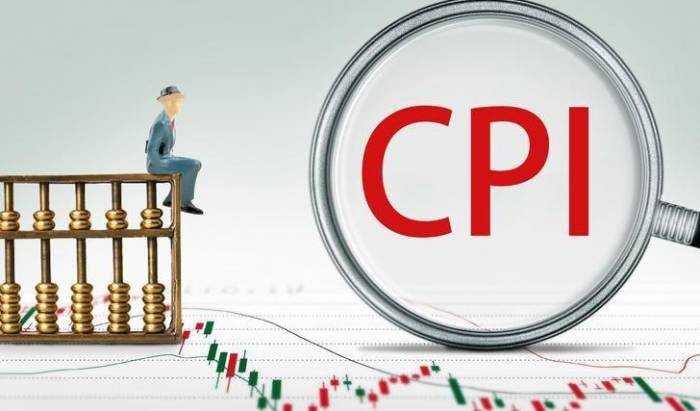The National Bureau of Statistics has released the latest inflation data, and everyone must have noticed that the year-on-year inflation rate in January has increased compared to the previous two months, currently standing at 2.1%, returning to the level of last October.
Inflation is on the rise again!
Especially when compared to December, the month-on-month increase in January is 0.8%, which is the highest month-on-month growth rate in the past year.
This inevitably raises concerns among investors about whether inflation will continue to rise, whether prices will keep increasing, and whether we will follow the footsteps of Western countries in raising interest rates.
01, The stock market has fallen
Perhaps influenced by the news, or perhaps by coincidence, within an hour of the opening of the A-share market, all major indices were in the red.
The CSI 300 Index, representing large-cap stocks, fell by 0.4%, and the SME Index also fell by 0.38%.
However, on a slightly better note, across the entire A-share market, there were 2,700 companies that saw their stock prices rise, while nearly 2,000 companies experienced a decline, with more stocks rising than falling.
But the situation in the Hong Kong stock market is a bit worse, with the Hang Seng Index currently down by 1.3%, losing nearly 300 points, and the Hang Seng Tech Index down by 3%. Moreover, both indices are still trending downward, with no signs of a rebound in sight.
Of course, the decline in the Hong Kong stock market could also be influenced by the drop in the U.S. stock market last night.Regardless of the circumstances, the latest CPI data, which is higher than that of the previous two months, has indeed caused some concern among investors.
02. No interest rate hike
It should be said that the public's concern about inflation is justified.
In the recent round of inflation in Europe and America, everyone should have observed that in order to control inflation, continuous interest rate hikes have been necessary.
The significant increase in interest rates has led to rising mortgage costs for ordinary people and also increased financing and financial costs for businesses, which are all important factors that restrict economic development.

Since the Federal Reserve announced interest rate hikes last year, the U.S. stock market has been continuously falling, which in turn has affected the synchronized decline of global stock markets.
However, our annual inflation rate for the whole of last year was 2%, and the inflation rate in January of this year was only 2.1%. Compared with the inflation in Europe, America, and other countries, it is within a very appropriate range and is far from the level that requires an interest rate hike.
Of course, in our past economic development, we have also been severely affected by high-risk inflation, especially in years when the economic growth rate was relatively fast, inflation tended to be faster as well, so most people have a strong aversion to inflation.
But in recent years, we have been more cautious in monetary policy, so our inflation has been relatively better. The last round of inflation that comes to mind should be from 2019 to 2020, caused by the continuous rise in pork prices.
Subsequently, during the pandemic, our inflation rate has been significantly lower than that of Europe, America, and other countries.Therefore, there is no need to worry at the moment; everyone just needs to pay attention to whether the central bank's monetary injections will correspondingly slow down.
03, Positive Outlook
Currently, our country's economic environment can be said to be in the most favorable situation in recent years.
Internally, after the readjustment of epidemic prevention and control measures, consumer confidence has returned, and people are once again willing to spend money. As long as money is spent, it will not remain in bank deposits but will circulate through various industries and sectors.
In the past two years, people were concerned about unemployment, the difficulty of finding jobs, and the challenges of doing business; these concerns will gradually dissipate.
Externally, the Federal Reserve has gradually reduced the pace of interest rate hikes, which has also reduced the pressure on us. Therefore, it is not ruled out that the actual market interest rates may continue to fall in the coming period.
As the business environment for companies improves, profits naturally increase, which is a good thing for both the overall economy and the A-share market.
post your comment